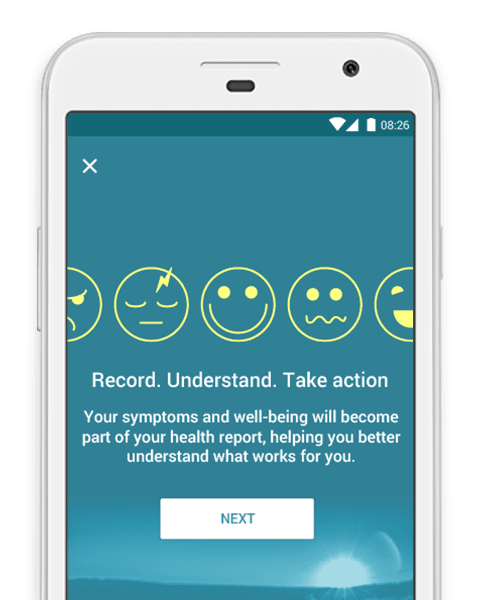Antidepressants have long been associated with weight gain. This can be a cause for concern for many people living with depression, who are keen to treat the condition but do not want to the number on the scales creeping up.
Do Antidepressants Cause Weight Gain?
“Widely used antidepressants might be contributing to the obesity epidemic in developed nations, according to the authors of a new study which found people using them for a prolonged period were 21 percent more likely to put on weight.”
That is the opening paragraph of an article published in the British newspaper, The Independent, last year.
It refers to a study that found people taking antidepressants were more likely to put on weight than people not taking them, especially when taken for a couple of years or longer.
The study singled out mirtazapine, most-commonly sold under the brand name Remeron, as the most likely to lead to weight gain. The researchers conclude that antidepressants should be a last resort for treating milder cases of depression and that other methods, such as therapy, should be favored.
The study sits atop a pile of others linking antidepressants to weight gain; experts have found that as many as one in four people taking antidepressants gain at least 10 pounds (about 4.5kg). Although it has not been proven that antidepressants directly cause weight gain, there certainly seems to be a link.
Some antidepressants – and classes of antidepressants – are more heavily associated with weight gain than others, such as:
- Tricyclic antidepressants including amitriptyline (sold under the brand name Elavil, among others), imipramine (Tofranil), and doxepin (Sinequan)
- MAO inhibitors including phenelzine (Nardil), isocarboxazid (Marplan), and tranylcypromine (Parnate)
There is evidence that tricyclic antidepressants and MAO inhibitors, which are quite old classes of antidepressants, are the most likely to lead to weight gain.
However, more modern selective serotonin reuptake inhibitors – the most commonly prescribed antidepressants – have also been associated with weight gain, including paroxetine (Paxil, Pexeva, Brisdelle), sertraline (Zoloft), fluoxetine (Prozac), and citalopram (Celexa). Some studies have found that long-term use (six months or longer) of SSRIs are more likely to lead to weight gain than short-term use.
Other posts you may be interested in on the MyTherapy blog:
The Link Between Antidepressants and Weight Gain
The exact nature of the link between antidepressants and weight gain is not fully understood. However, there are two common theories that may explain it.
The first theory is that weight gain could actually be a sign that antidepressants are working.
Theory 1: Enjoying Food Again
Losing your enjoyment of food, a lack of appetite, and losing weight are known symptoms of depression.
It stands to reason, therefore, that treating depression can bring back your enjoyment of food and appetite, which can cause you to gain weight. Similarly, effective treatment for depression may make you more socially active, which may involve eating out and drinking alcohol.
Conversely, some people overeat because of depression and find they eat less once they receive treatment. This, along with more energy and a greater inclination to exercise, may explain why some people experience weight loss rather than weight gain when taking antidepressants.
These lifestyle factors may help explain why studies investigating weight gain/loss relating to the use of antidepressants are inconsistent; much of it may depend on your personal symptoms of depression and subsequent behavior once you receive treatment.
However, this theory does not necessarily explain why different antidepressants are more heavily associated with weight gain (or loss) than others.
Theory 2: Effect on Metabolism & Appetite
Norman Sussman, MD, a psychiatrist and associate dean for postgraduate medical programs at the NYU School of Medicine, told Drugs.com that he has had patients who are adamant that they are putting on weight but not eating more.
This, Sussman says, suggests that there is some metabolic influence that may lead to weight gain.
He also says that he has had patients who have increased hunger that persists even when they eat more, along with a craving for carbohydrates. This difficulty in satisfying your appetite can also lead to overeating and weight gain.
Unlike the previous theory about your enjoyment of food returning, this suggests that antidepressants may directly influence your metabolism and appetite.
Many experts believe this effect probably relates to serotonin, which is the neurotransmitter most antidepressants act on in some way. Serotonin has long been believed to help regulate your appetite and there is recent evidence that it may even play a role in fat metabolism.
Ultimately, it seems likely that both theories have an element of truth to them, while other unknown factors may also be involved.
What Should You Do?
Practically all medications come with a risk of side effects. Although weight gain is a possible side effect of many antidepressants, it does not happen to everyone. Many people gain no weight or only a little, some lose any weight gained once their body adjusts to the medications, and others even lose weight.
In some cases, people gain (or lose) weight they lost (or gained) as a result of weight changes that were initially symptomatic of depression, which can be seen as a positive.
For others, however, weight gain is a more serious concern. It can be damaging for your self-confidence and increase your risk of other conditions associated with being overweight or obese.
Ultimately, any concerns you have must be discussed with your doctor. If you have been prescribed antidepressants, it is recommended that you continue taking them exactly as intended unless told otherwise by your doctor. If you suddenly stop taking antidepressants, you could experience worsening depression among other effects.
Frustrating and time-consuming though it may be, it can take several attempts to find a treatment that is both effective and free (or nearly free) of side effects. Once you do so, however, you can enjoy an improved quality of life without unwanted weight gain or other side effects.
Take a look at some of the other posts on the MyTherapy blog:
- Celebrities & Mental Health <span>(</span>Part 1<span>)</span>: 10 TV, Film, & Music Stars Who’ve Opened Up
- Celebrities & Mental Health <span>(</span>Part 2<span>)</span>: Famous Faces from Sport, Fashion, Politics & More
Learn more about some of the most common antidepressant medications here:



